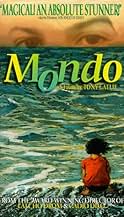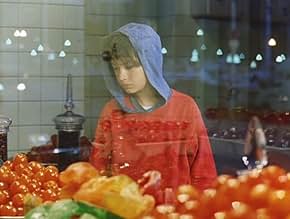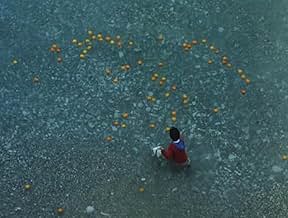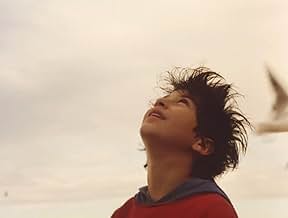Mondo is a homeless young boy, with a big smile, who wanders around Nice looking for food and a place to sleep.Mondo is a homeless young boy, with a big smile, who wanders around Nice looking for food and a place to sleep.Mondo is a homeless young boy, with a big smile, who wanders around Nice looking for food and a place to sleep.
- Director
- Writers
- Stars
- Awards
- 1 win total
- Director
- Writers
- All cast & crew
- Production, box office & more at IMDbPro
Featured reviews
Mondo begins like a quiet, almost whimsical tale of a mysterious boy drifting through the streets of Nice. With minimal dialogue and an observational style, it may seem droll at first, but stick with it, focus, and don't try to decode the storyline... You won't figure it out.
As the story unfolds, a subtle twist emerges that forces you to reconsider everything you've just seen. The film's strength lies in its quiet depth and the emotional weight it reveals in hindsight. A second viewing brings out hidden layers and powerful "a-ha" moments. Thoughtful, well-acted, and deeply affecting-a quietly profound experience.
As the story unfolds, a subtle twist emerges that forces you to reconsider everything you've just seen. The film's strength lies in its quiet depth and the emotional weight it reveals in hindsight. A second viewing brings out hidden layers and powerful "a-ha" moments. Thoughtful, well-acted, and deeply affecting-a quietly profound experience.
Mondo is based on a short story by French author J.M.G. Le Clézio. The story is the first in a collection of stories about children. In each narrative a child is in some way alienated from the dominant culture while at the same time embodying something that this culture is missing.
In Gatlif's retelling, Mondo is alienated by the busy consumer society of Nice, France: he is always hiding from city officials who try to arrest him and he feels ill-at-ease in the bustling downtown area. He makes his home among the other marginalized Niçois: the homeless, foreigners, gypsies, etc. Gatlif artfully frames the life of Mondo and his friends and makes the viewer feel sympathy for society's rejects.
Gatlif shows how Mondo changes people who let him into their lives while demonstrating the blindness of government agencies that deal with stray children.
An excellent film. Even my children love it.
In Gatlif's retelling, Mondo is alienated by the busy consumer society of Nice, France: he is always hiding from city officials who try to arrest him and he feels ill-at-ease in the bustling downtown area. He makes his home among the other marginalized Niçois: the homeless, foreigners, gypsies, etc. Gatlif artfully frames the life of Mondo and his friends and makes the viewer feel sympathy for society's rejects.
Gatlif shows how Mondo changes people who let him into their lives while demonstrating the blindness of government agencies that deal with stray children.
An excellent film. Even my children love it.
I thought it was great when the old man was teaching Mondo to spell with letters scratched onto rocks and Mondo scooped up all the letters in his name and carried them off in his pockets. There's something about a name, isn't there? --
10Anglik
Throughout this movie experience - which moved me to tears several times - I had an extraordinary feeling that I was watching an adaptation of "Le Petit Prince" ("The Little Prince") by Antoine de Saint-Exupéry. Even though the film is set in a different time and place, and its main characters and plot line are not really in sync with the story of a boy from another world, there is, at the same time, a strange affinity here with de Saint-Exupéry's timeless classic. As we watch the peculiar odyssey of a little Mondo - a boy with no home, no family, no past, no memory almost, and no real skill apart from smiling wide joyful grins and opening his heart to strangers - we have no other choice but to fall in love with this little homeless adventurer, this modern Gavroche, who seems almost mythical in the way he turns up in the midst of people's lives to touch them, move them, perhaps change them - for a couple of days, or forever.
Heartily recommended to all those who embrace cinema as a way of channeling emotions, rather than notions and philosophical ideas, through images. "Toujours beaucoup".
Heartily recommended to all those who embrace cinema as a way of channeling emotions, rather than notions and philosophical ideas, through images. "Toujours beaucoup".
This film is a must-see, like Gatlif's Latcho Drom. It is poetic, cinematically poetic. There are several moments that brought me to tears, out of the sheer beauty of the human emotion expressed in acting and photography. "Acting" does not sound right - you have the impression you are watching real people living out love in their actual souls.
Details
- Runtime
- 1h 20m(80 min)
- Color
Contribute to this page
Suggest an edit or add missing content






